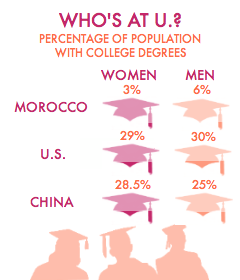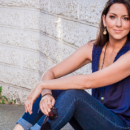
February 28, 2013 | War and Peace
“Widow Doesn’t Have to Be an Ugly Word”
Taryn Davis helps military wives reclaim their lives.

"My husband was killed on May 21, 2007. I was twenty-one years old and he was 22," says Taryn Davis, recalling the death in Iraq of her Army corporal husband. "I was a senior in college, getting a degree in criminal justice. When I was notified that night, in a way I literally died; it was a loss of identity; it was a loss of the dreams and hopes. I really never felt so alone." Davis also realized she wasn’t the only military widow experiencing these feelings and set out to do something about it. So far her American Widows Project has offered support to more than 1,500 widows and held 35 events around the country. She took our questions from her home in Buda, Texas.
What was the moment that made you start the American Widows Project?
Three months after Michael died, I truly hit rock bottom and started to consider thoughts of suicide. I thought of what Michael wanted more than anything and it hit me that I needed to try and live for Michael until I could find a way to live for myself. First step was embracing this taboo word and title widow. I went onto Google that night, typed in "widow" and the response was "Did you mean window?" I saw that response as a catalyst for change.
How did you get it off the ground?
Every resource out there for military widows seemed so candy coated and cheesy. I wanted to film a documentary that was more raw and candid. I called the only other military widow I knew, Jessica, and asked if I could interview her. When I flew out to see her three weeks later, it was the first time since Michael’s death that I felt connected to someone.
There was an instant camaraderie between us. When I finished the documentary we invited 30 military widows for its premiere and to launch the organization. Rather than having counselors come and teach them how to grieve, we took them zip-lining, tubing, and really allowed the widows to get to know each other. I saw them come to life and I felt myself to come to life as well. And it all snowballed from there.
How are women changed by the Project?
We have so many widows that come to our organization and right from the get-go say "please don't call me a widow.” We try and let them know that the title didn't have to be this ugly word; that it could embody the sacrifice made by our husbands and ourselves. It could be a title that we could be proud of. But the only way we going to be proud of it is to embrace the word and make the world know that military widows aren't a group of people we should feel sorry for, but a group of people we can learn from. We try to show those women this and by the end of the weekend, it's amazing to see that change from women who originally said don't call me that to embracing that word and screaming, "I'm a widow! I'm a widow! I'm a widow!"
Is there a particular story that makes you the most proud?
Tara had reached out to our organization two years after her spouse died in Afghanistan. During the retreat, she was very quiet and stoic. At the end of the weekend, she gave me a hug and asked, "Can I change my flight and stay at your house a couple of days?" She was a stranger, but she was a widow so I said, "Of course." At my house, she pulled out her computer to show some pictures. Right off the bat, the first thing we noticed was that she was in these photos in uniform.
We asked, "Tara, were you serving out there with him?" and she said, "Yes." She went on to explain that she was there in Afghanistan serving with her husband, when she learned he had been killed. When the helicopter landed at their base, she was the person to identify his body. After her time of service ended, she went straight into a military contracting job. When we met her two years later, she had never talked about her own story. She had a severe post-traumatic stress disorder and this was her first time sharing with anyone. Fast forward five years later, she eventually quit her military contracting job, now works for the Project and has become one of my closest friends. She has been a key component to our own program's success.
What advice do you have for young woman wanting to make a difference in the world?
Don't doubt yourself. I had everyone and their dog telling me not to make this organization. It's the moment when we feel the most uncomfortable and when we start doubting ourselves that the biggest changes happen.
When people finish this interview, what is one thing that you want them to take away?
To ask themselves if they are truly living or merely existing. Sometimes it takes a catastrophic event like losing a spouse to learn how to live fully. I learned so much about living life passionately and with purpose from Michael's death. I wish I had known it before.
What do you want your legacy to be?
I would want them to say that I made one person's life a little bit easier. I've had over a thousand widows make my life easier by allowing me to find courage through them.